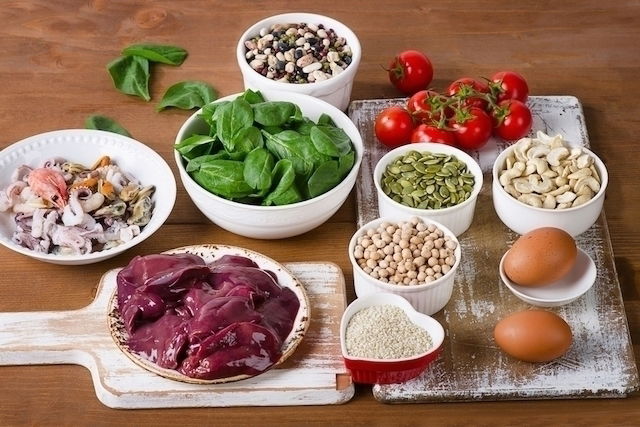Dengue treatment should involve the consumption of foods like lean red meat (e.g. duck and sirloin beef), white meat (e.g. chicken and turkey) and leafy green veggies (e.g. kale, spinach and arugula). These foods tend to have high protein and iron contents that help to prevent anemia and strengthen the immune system, both which are factors for a speedy recovery.
There are also foods that should be avoided when infected with dengue fever, such as peppers, gingers and berries, for example. These foods specifically can increase the risk of bleeding.
A body that is well-nourished is better-equipped to combat a dengue infection. Therefore, it is important to eat frequently, rest and drink at least 3L (about 12 cups) of fluid a day.

What to eat
During dengue treatment, you should incorporate the following foods in your diet:
- Lean red meat, like duck and top sirloin beef
- White meat, like chicken, turkey and fish
- Eggs
- Milk and dairy products, like milk, Greek yogurt, butter and cheese
- Fruits, like watermelon, banana, pear, and mango
- Vegetables, like beets, kale, carrots, lettuce, spinach and arugula
These foods are rich in protein and iron, which are nutrients that are necessary to prevent anemia. Dengue can also lead to decreased platelets and hemoglobin from hemorrhaging, which is why consuming these foods is important.
In addition, some teas, like chamomile and peppermint tea, may also be beneficial in managing dengue-related symptoms, like nausea, headache and body aches.
Some studies [1] [2] [3] show that supplementing with vitamin D may also help to strengthen the immune system to combat a dengue infection. Vitamin D contains an immunomodulador effect, as does vitamin E (which has antioxidant action that protects immune system cells).
Foods to avoid
Foods that contain high amounts of salicylates should be avoided when treating a dengue fever infection. Salicylates are produced by plants to protect themselves from certain microorganisms. These compounds act in a similar way to aspirin in the body, and excessive consumption may thin the blood and interfere with effective clotting. This can increase your risk for hemorrhaging, which is already high with dengue.
Therefore, foods to avoid include:
- Some fruits, like raspberries, blueberries, plums, coconut, peaches, melon, pomegranate, lemon, tangerine, pineapple, cherries, grapes, gooseberries, tamarinds, persimmon, oranges, apples, kiwi and strawberries
- Some vegetables, like asparagus, celery, onion, eggplant, broccoli, radish, garlic, tomato and cucumber
- All dried fruit, like raisins, prunes, dates and dried cranberry
- Some tubercles, like potatoes and sweet potatoes
- Some nuts, like almonds, walnuts, pistachio, Brazilian nuts and peanuts
- Some condiments and herbs, like mustard, cumin, cloves, parsley, coriander, paprika, cinnamon, ginger, nutmeg, black or red pepper, oregano, saffron, thyme, rosemary, anise, vinegar and curry. ;
- Some drinks, like wine, beer, liquor, rum and coffee
- Some tea, like white willow, ginger, weeping willow, whicker, parsley, rosemary, thyme and mustard teas
- Other foods, like olive oil, fava beans, coconut oil, honey, pickles and olives
In addition to avoiding these foods, you should also discontinue any medications that are contraindicated when treating dengue, like aspirin. If you have dengue, you should speak with your doctor about the medications you are currently taking and whether you should continue or hold them temporarily.
3-day dengue diet plan
Here is an example of a dengue meal plan that promotes a speedy recovery:
